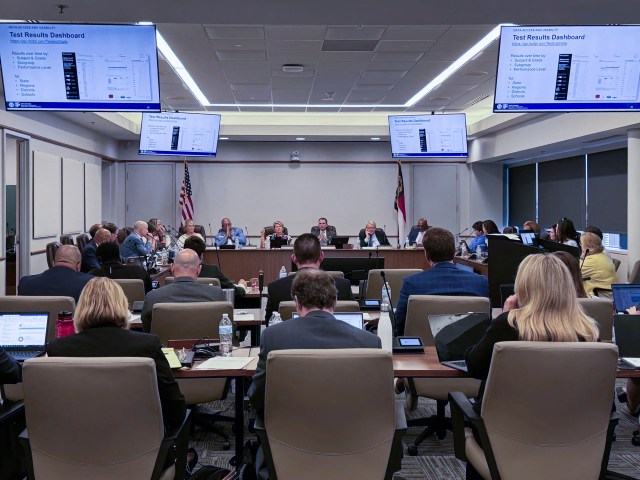Backed by a group of Arizona seniors, Gallego highlighted his work to lower prescription drug prices at Phoenix pharmacy Monday and took the time to contrast himself with Lake, who he said previously called to significantly cut the federal budget and likened price negotiation on pharmaceuticals to communism. Gallego chiefly highlighted his work backing the Inflation Reduction Act, which, in part, caps the cost of insulin at $35 and puts a $2,000 limit on out-of-pocket costs for those on Medicare. Doug Hart, a senior and former president of Arizona Alliance for Retired Americans, said his out-of-pocket costs were $5,000, and under the $2,000 price cap, he would be saving $3,000. “Any senior that votes for Kari Lake has got to think, do I really want to spend $3,000 more out of pocket to vote for her?” Hart said. Gallego said Lake proposed a 50% to 70% cut to the federal budget, which he claimed would “put Medicare and other vital programs on the chopping block.” Lake did not make any specific mention of Medicare when proposing cuts. And she said most recently at Trump’s rally in Glendale that “any politician who tries to lay a finger on your Medicare or Social Security will have to go through me.” But when asked about price controls on Medicare in an interview August 15, Lake said the proposal fell in line with communism. Gallego’s press conference Monday again highlighted his support from senior organizations. He received endorsements in May from the Arizona Alliance for Retired Americans and the National Committee to Preserve Social Security and Medicare. “I will continue to work in partnership with Arizona seniors because of our shared mission of making Arizona a place where people have access to safe retirement, access to health care, and they can retire comfortably, safely and with dignity,” Gallego said. “I will always fight to protect Medicare, to keep medication affordable and to preserve Arizona’s part or benefits, and this is a fight that will take with me all the way to the Senate.”
Stay ahead of the curve as a political insider with deep policy analysis, daily briefings and policy-shaping tools.
Request a Demo







